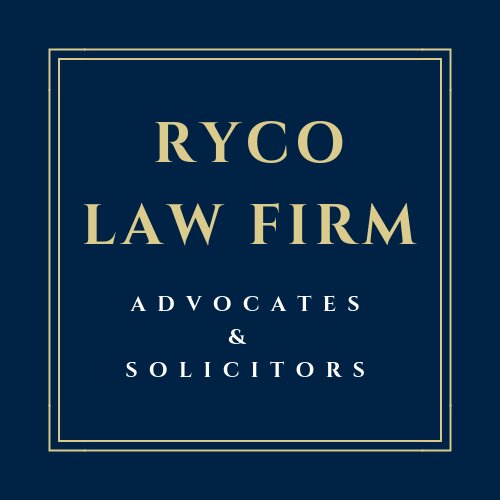Best Collaborative Law Lawyers in Kota Kinabalu
Share your needs with us, get contacted by law firms.
Free. Takes 2 min.
Free Guide to Hiring a Family Lawyer
List of the best lawyers in Kota Kinabalu, Malaysia
About Collaborative Law in Kota Kinabalu, Malaysia
Collaborative Law in Kota Kinabalu, Malaysia, is an alternative dispute resolution mechanism that focuses on enabling amicable agreements between parties, often in family law disputes such as divorces or custody battles. The approach is rooted in cooperative negotiation, with the primary goal being to settle conflicts outside of court, thereby saving time, reducing costs, and preserving relationships. Collaborative law in this region is gaining traction as more individuals and families seek out less adversarial means to resolve their legal issues.
Why You May Need a Lawyer
Engaging a lawyer specialized in Collaborative Law can be crucial in various situations:
- Divorce or separation proceedings where parties wish to avoid courtroom battles.
- Child custody and visitation arrangements, aiming for cooperative parenting plans.
- Business or employment disputes where maintaining a working relationship is beneficial.
- Property disputes, particularly when parties aim to minimize conflict and preserve assets.
- Any scenario where preserving relationships and privacy are paramount concerns.
Local Laws Overview
Kota Kinabalu falls under the jurisdiction of Malaysian federal laws, but there can be regional variations in practice. Collaborative Law is not formally codified in Malaysia, but its practice is upheld by the spirit of the legal system that encourages amicable dispute resolution. Family law, governed by the Law Reform (Marriage and Divorce) Act 1976, and child custody matters, often influenced by the principles of the Child Act 2001, are areas where collaborative approaches are frequently applied. Engaging professionals who understand these nuances is essential in effectively navigating these legal landscapes.
Frequently Asked Questions
What is Collaborative Law?
Collaborative Law is a legal process aimed at resolving disputes amicably without going to court, emphasizing cooperation and open communication.
How does Collaborative Law differ from traditional litigation?
Unlike traditional litigation, Collaborative Law focuses on negotiation and settlement, avoiding adversarial court proceedings.
Is Collaborative Law recognized in Kota Kinabalu?
While not formally codified, Collaborative Law practices are recognized and supported as an alternative dispute resolution method in Malaysia.
What types of disputes can be resolved through Collaborative Law?
It is suitable for family law matters, employment disputes, business conflicts, and other civil matters where cooperative solutions are beneficial.
Do both parties need to agree to use Collaborative Law?
Yes, both parties must voluntarily agree to engage in the collaborative process and commit to negotiating in good faith.
What happens if we can't reach an agreement?
If an agreement can't be reached, parties may have to transition to traditional litigation, utilizing different legal representation.
How long does the collaborative process take?
The duration varies, but it can be significantly shorter than traditional court proceedings, depending on the complexity of the issues.
Are the outcomes legally binding?
Yes, agreements reached through Collaborative Law are formalized in writing and can be made legally binding by the court.
What qualifications should a Collaborative Lawyer have?
Look for lawyers who have training in Collaborative Law and experience in mediation and negotiation.
Can Collaborative Law be used in international disputes?
Yes, especially in matters where parties are in different countries but mutual agreement and cooperation are feasible.
Additional Resources
The following resources can be helpful for those seeking guidance:
- Malaysian Bar Council - Provides guidance and resources on legal standards and practices.
- Sabah Law Association - A local body that supports legal professionals and can offer assistance in finding a collaborative lawyer.
- Local Mediation Centers - Several centers offer mediation services which align well with collaborative principles.
Next Steps
If you need legal assistance with Collaborative Law in Kota Kinabalu, consider taking the following steps:
- Research and identify lawyers specializing in Collaborative Law.
- Schedule consultations to discuss your case and explore whether collaborative resolution is suitable.
- Gather all relevant documents and information to assist your lawyer in understanding the context and issues at hand.
- Commit to the process with an open mind and willingness to engage in cooperative negotiation.
- Engage your legal representative to formalize agreements reached collaboratively and ensure they are legally binding.
Lawzana helps you find the best lawyers and law firms in Kota Kinabalu through a curated and pre-screened list of qualified legal professionals. Our platform offers rankings and detailed profiles of attorneys and law firms, allowing you to compare based on practice areas, including Collaborative Law, experience, and client feedback.
Each profile includes a description of the firm's areas of practice, client reviews, team members and partners, year of establishment, spoken languages, office locations, contact information, social media presence, and any published articles or resources. Most firms on our platform speak English and are experienced in both local and international legal matters.
Get a quote from top-rated law firms in Kota Kinabalu, Malaysia — quickly, securely, and without unnecessary hassle.
Disclaimer:
The information provided on this page is for general informational purposes only and does not constitute legal advice. While we strive to ensure the accuracy and relevance of the content, legal information may change over time, and interpretations of the law can vary. You should always consult with a qualified legal professional for advice specific to your situation.
We disclaim all liability for actions taken or not taken based on the content of this page. If you believe any information is incorrect or outdated, please contact us, and we will review and update it where appropriate.












